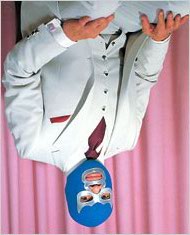 1955 thriller
1955 thrillerRating: 17/20
Plot: Michel runs the boarding school owned by his wife Christina, a teacher at the school. Michel's also sleeping with Nicole, another teacher in the school. Since he's kind of a jerk, Christina and Nicole conspire to get rid of him by drugging him and drowning him in a bathtub. Huzzah! They get back to school and dispose of the body in a rather filthy swimming pool, but soon realize their troubles are not over when the pool is emptied and Michel is nowhere to be found. Oh, snap!
I was really digging this artfully tense little thriller until the final fifteen minutes or so when I was blown away. To be completely honest, the ending is a little predictable, even the ending that takes place after the ending, but the way director Clouzot builds the tension and constructs the story is nothing short of masterful. The direction is deceptively simple. I loved the camera work in this one, all those slight movements that led to big revelations. It's all deliberately paced, but it's perfectly deliberately paced. The story gets some room to breathe which, despite some implausibility, somehow keeps everything plausible. I liked Paul Meurisse (Army of Shadows) as the jerky Michel. Actually, Simone Signoret who plays the mistress was in Army of Shadows, too. I would have given this movie an extra point if she looked less manish and wore her sunglasses less. Still, this is excellent stuff.
















